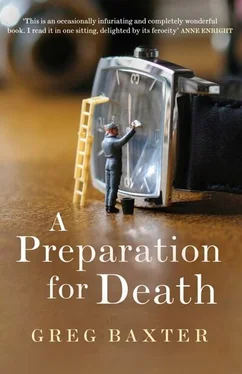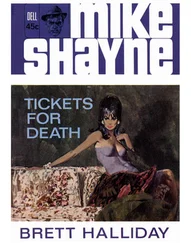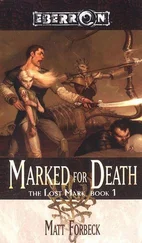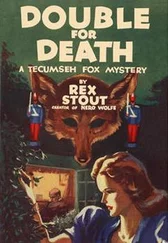A long walk behind the Rathaus, up Florianigasse, into the Eighth District, then a right, in search of Laudongasse — the memory of 2002. I find it, but it is emptier than I remember. I have my headphones playing very loudly now — I am giving Mozart a chance, even though he is somehow too perfect for me, a perfection so clean and alien that it seems to have no personality. Yet the violins are going; they are tearing open little fissures in the universe. It is like watching a great battle from a long distance, and very high up; whereas someone like Tchaikovsky puts you in the trenches, with bayonets in your neck. I catch the number 5 because I see two black-haired teenage girls hop on — they are both in black jackets and dark blue jeans. I stand so close to them that I can smell the shampoo in their hair. We all jingle-jangle up the road, with the deep clang of the streetcar bell and the little automated voice telling us what the next stop is, and if there are connections. The girls get off somewhere, but I stay on until Café Hummel. I sit down for a bite to eat and a Melange. In March 2008, Walter and I drove up to a spot in the hills outside the city, where there is a stone circle, and where the beginning of spring is celebrated with bonfires and Bach’s St Matthew Passion on loudspeakers. There was a full moon, or nearly, over the city that night, glowing yellow-white. Now I am watching streetcars go by — the 33, the 5, the 2. There is nothing at all to this connection, but somehow the two moments link, they move by each other on the street like the 5 going toward Westbahnhof and the 33 heading back to Laudongasse.
Walter and I went to the Konzerthaus to hear the Budapest Festival Orchestra play Brahms and Prokofiev. The tickets cost twelve euro each: our seats were nosebleeds. I nearly fell asleep during the first Brahms piece; it was nondescript, and I was very tired. I was also dehydrated, and my throat was sore, so I kept clearing my throat. The woman in front of me turned her head every time I made a noise, and I felt so enraged by this that I slammed my knee against her seat every time she turned her head. The second piece was Prokofiev’s second violin concerto, and a beautiful Japanese woman in a glittery silver dress — the soloist — woke me up. I also preferred the Prokofiev. Preferred is inadequate. I felt rather shocked by it. It was erratic, impulsive, imperfect. But I am not qualified to discuss music. I am merely equipped with ears. I watch the world-class musician with the same bewilderment that a caveman might feel after getting struck down by an automobile. The concert played on — another, much better, Brahms piece — and Walter began to perform little head bops at all the big moments. He began to conduct very subtly with his fingers. The musicians were bouncing in their chairs. They attacked their own noise. The conductor leaped and beat at the air. The concert house was suddenly thick with sound. I felt that if I stuck my tongue out, the sound might taste of gunpowder. And then it ended. The orchestra played a raucous Hungarian dance by Brahms for the encore, and we stormed the cloakrooms, a thousand of us, all at once, and filed out into the blue, icy night. A man with a violin case went by us in a dirty overcoat. He was shaggy, and it seemed to me that there was ice on his beard. I loved the sight of him. To me he was the last genius on earth. I imagined that he had played in the fourth or fifth row of some philharmonic, maybe twenty years ago, and quit in order to compose something new, a last symphony, a symphony that would murder music forever. And I imagined that he had not written a note of it yet.
Clare arrived for a long romantic weekend, and has now gone. The city has grown exponentially colder. My skin is so dry that I am scratching it off myself. My elbows, thighs, calves and waist have long claw marks that bleed: I wake myself up in the night scratching. Walter’s love life has become rather tumultuous and full of possibility, and as a result of that and a dozen other things — his work schedule, his drug habit, his belief that he has stopped existing, or has not existed for twenty years — he has developed a very bad pain in his neck, and goes around the house like a crippled hunchback. He is taking medication and gets massages from his mother, who was a nurse. The sight of Walter in pain tends to bring everyone around him down, not because he complains but because he becomes so disappointed in himself. And you cannot help but feel that you have somehow contributed. Today — a sunshiny Monday, with snow glowing on rooftops — he can barely walk. I saw him boiling the kettle for a hot-water bottle, and while he was waiting he began to collapse slowly — his knees could not take the weight — and only stood half-upright again when I appeared behind him to ask if I could help.
In 2002, when I spent four weeks in Vienna, I made very good friends with a woman named Onka, a beautiful, large-breasted restaurant owner ten years older than me, half Swedish, half Austrian. She is, now, in an unhappy relationship, Walter tells me, and she has not returned the call I made to her. During that visit, I spent almost every waking hour with Walter (who was unemployed) or Onka, or both — and Walter’s brother Michael was often around, and a band of A-list gay men who wrote and starred in cabaret and drag shows. I am thinking of Lucy McEvil in particular, Austria’s most famous drag queen, who lives in the hills outside Vienna, in a house she calls Villa Valium: she has nothing but vodka in the house, and a few fine foods to nibble on.
Michael, in 2002, was single and overlascivious. He used to stroke slim glasses of drink in crowded bars and moan and whimper, and accelerate until he came. Sometimes he did this in the middle of the day, in cafés, with children around. You never saw anything like it, him wiping his brow afterward, and a child staring at him in horror. Now he is in a stable, exclusive, and very sweet relationship with a young eastern European man. He does not go out anymore, and I have only seen him once since I arrived. I asked Walter if he wants the same thing — a kind of marriage, even something that allows for sex with other people. We were at the bar up the road from the apartment in Ober St Veit. It was empty except for me, Walter, and the voluminous blonde barmaid, who has a mole on her upper lip. All our nights out together, this time, seem to take place in this empty bar. The worst music imaginable is played there. He could not really answer the question. All the answers are easy to say, but none of them are true, he said.
Yesterday I bought a little Moleskine notebook — incredibly overpriced, but small enough to carry in my pocket. I was sick of carrying a bag around with the old notebook, and I’d started writing German words I wanted to remember on my hand. With Clare away, I was spending time with Wittgenstein again. I try to memorize my favourite words in his book, but it will be difficult to put them to use without forcing them into unlikely contexts. My list includes words like unwägbar (imponderable), willkürlich (arbitrary), mannigfaltig (variegated), die Öde (barrenness), beunruhigen (to trouble), das Bestehen (existence), bildlich (figurative), die Täuschung (illusion), and isoliert (isolated). I haunt the little alleyways of the First District coming up with sentences to use these words in — words that choose me, and nicht das Umgekehrte (not the other way around). The cold loosens its grip a little, and I turn down the collars of my pea coat and take my gloves off. The language absorbs my identity into it; somehow I solidify into the form that is the imponderable calculation of relationships of meaning and use, and the past, and of memory. And the more solid I become with language, the more imponderable I am.
Читать дальше












